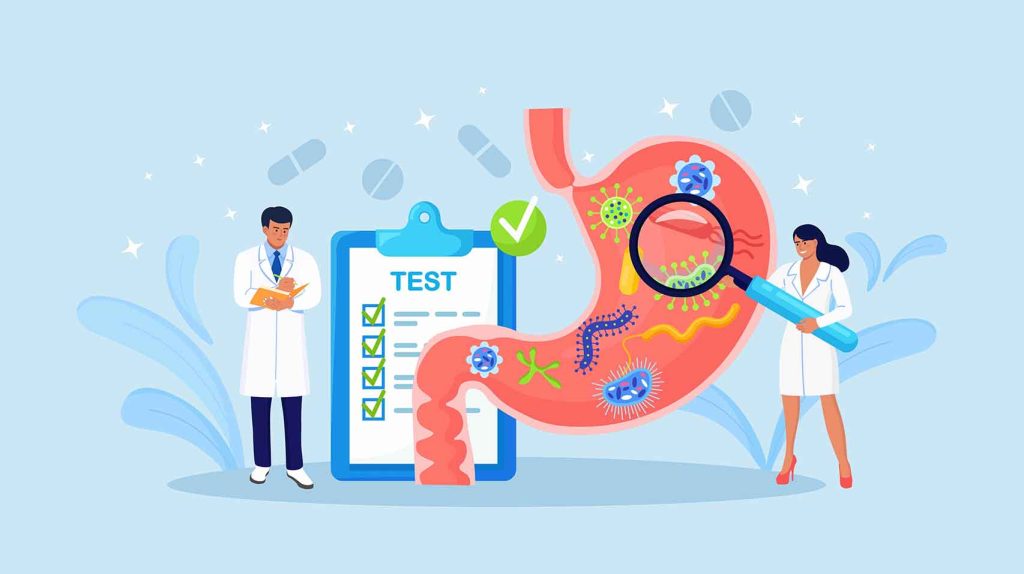Ozempic (semaglutide) has rapidly become a household name in recent years — not only as a treatment for type 2 diabetes but as a powerful weight-loss tool. Its popularity has surged, driven by rapid clinical results and celebrity endorsements.
However, while Ozempic can be effective for reducing body weight and improving blood sugar regulation – like any medication – its use also raises important questions about long-term health, nutrient status, gut function, and metabolic resilience.
In this article, we explore how Ozempic works, the clinical evidence behind it, the risks associated with its use, and how a functional medicine approach can help support your body if you are taking Ozempic, or otherwise provide a natural alternative for achieving sustainable weight loss.
Around 86 % of participants in clinical trials achieved clinically meaningful weight loss (≥ 5 %) by 68 weeks using semaglutide injections.
What Is Ozempic and How Does It Work?
Ozempic is a once-weekly injectable medication containing semaglutide, a GLP-1 (glucagon-like peptide-1) receptor agonist. GLP-1 is a hormone produced naturally in the gut in response to eating, and it plays a central role in regulating blood sugar and appetite. By mimicking this hormone, semaglutide slows gastric emptying, enhances insulin secretion, reduces post-meal blood sugar spikes, and promotes feeling full.
Originally developed to support glycaemic control in people with type 2 diabetes, Ozempic has since gained approval in higher doses for the treatment of obesity. Clinical trials have shown that weekly semaglutide injections can lead to weight reductions of up to 15–20% over the course of 68–72 weeks. In real-world studies, many patients see between 5–10% weight loss within 3–6 months. However, weight regain is common once the medication is stopped—highlighting the need for sustainable, lifestyle-based metabolic support.

Common Side Effects of Ozempic and Clinical Considerations
While Ozempic can deliver substantial benefits for weight loss and blood sugar control, it also presents a number of clinical challenges that functional medicine practitioners must consider carefully.
Digestive Symptoms & Gut Motility
Gastrointestinal side effects are the most commonly reported issues with semaglutide. These effects are largely due to the drug’s ability to slow gastric emptying, which is part of its appetite-reducing mechanism. These include:
- Nausea
- Bloating
- Constipation
- Diarrhoea
- Abdominal discomfort — particularly during the initial titration period or when doses are increased.
A 2021 study published in The New England Journal of Medicine reported that up to 44% of participants experienced nausea, while 31% reported diarrhoea during the STEP 1 trial – a pivotal 68-week study for weight management. In some cases, prolonged delay in gastric emptying may also contribute to small intestinal bacterial overgrowth (SIBO) and impaired nutrient absorption.
Muscle & Bone Loss
A prominent concern with rapid weight loss on GLP-1 medications like Ozempic is the unintended loss of lean tissue, including muscle and bone. While fat loss is typically the goal, data suggests that up to 40% of total weight lost during semaglutide treatment may come from lean mass, especially in the absence of resistance training or adequate protein intake.
For example, the STEP‑1 trial—a pivotal 68-week study—reported a loss of approximately 6.9 kg of lean mass alongside a 15.3 kg total weight loss, meaning lean tissue accounted for around 45% of the total reduction. Another analysis found that 35–40% of weight lost in GLP‑1 trials was lean tissue, even though the ratio of lean-to-fat mass slightly improved
This may explain why some users report fatigue, reduced strength, or physical changes such as “Ozempic face” — a term referring to sudden facial thinning and volume loss due to fat and collagen depletion.
Nutrient Depletion
With reduced appetite and food intake, many individuals on Ozempic may struggle to meet their daily nutrient needs. This is particularly concerning for nutrients that require regular intake for maintenance, including:
-
Vitamin B12 and folate
-
Iron
-
Zinc and magnesium
-
Omega-3 fatty acids
-
Fat-soluble vitamins (A, D, E, K)
Left unchecked, these deficiencies can contribute to fatigue, hormonal imbalances, mood changes, immune dysfunction, and impaired detoxification.
Mood Changes & Mental Health
Although Ozempic is not formally classified as affecting mood or mental health, some users report experiencing emotional changes while on the medication. These can include low mood, anxiety, irritability, or a sense of emotional flatness.
While the mechanisms are not fully understood, possible contributing factors include blood sugar fluctuations, altered gut-brain signalling, reduced nutrient intake (particularly B vitamins and omega-3s), and changes in appetite-regulating hormones that also influence neurotransmitter balance.
Fertility & Contraceptive Considerations
Semaglutide may reduce the efficacy of oral contraceptives due to delayed gastric emptying and altered absorption.
As a result, the European Medicines Agency recommends that women of reproductive age use barrier contraception while taking Ozempic and for at least two months after stopping the medication, particularly if planning to conceive.

Book a Free Discovery Call
Discuss your health concerns with one of our expert practitioners and find out how personalised functional medicine can get your health on the right track.
A Functional Medicine Approach To Support Weight Loss
Weight loss is about far more than numbers on a scale or simple calorie calculations. It involves a complex interplay between your digestive health, hormonal balance, nutrient status, metabolism, and emotional wellbeing. Functional medicine takes a systems-based approach — addressing the root causes of weight gain and metabolic dysfunction by supporting the foundational areas that govern long-term health.
When it comes to GLP-1 medications like Ozempic, this means providing targeted support for digestion, nutrient repletion, muscle and bone preservation, and metabolic resilience — both during use and after discontinuation.
Support Gut Health
Digestive symptoms such as bloating, reflux, and sluggish bowels are common with GLP-1 agonists due to their impact on gastric emptying. Slower motility can also increase the risk of small intestinal bacterial overgrowth (SIBO). Where symptoms persist, it may be helpful to assess for microbial imbalances or motility issues.
A healthy, balanced gut microbiome is essential for metabolism and appetite regulation, so supporting gut integrity and function with personalised nutrition and lifestyle protocols is a crucial first step.
Preserve Muscle & Mass
Because rapid weight loss can lead to loss of lean body mass, it’s important to actively preserve muscle and bone. This is especially relevant for women over 40 or individuals with sedentary lifestyles.
Adequate protein intake is essential and should be evenly distributed across meals throughout the day. Resistance training — such as weight-bearing exercise, Pilates, or bodyweight workouts — helps stimulate muscle retention. Nutrients that support bone density, including vitamin D3, magnesium, calcium, and vitamin K2, should also be prioritised.
Prevent Nutrient Deficiencies
With reduced food intake, nutrient density becomes critical. Individuals using Ozempic may need to pay particular attention to B vitamins (especially B12 and folate), iron, zinc, magnesium, and omega-3 fatty acids. Fat-soluble vitamins (A, D, E, K) may also be at risk of depletion over time.
Where needed, supplementation can help bridge gaps — especially if appetite is low or if there are signs of deficiency. Regular deficiency testing allows for personalised support and helps avoid unnecessary or ineffective supplementation.
Support Blood Sugar Levels & Mood Stability
Even though Ozempic improves insulin sensitivity, supporting blood sugar balance through diet remains important. Meals that combine protein, fibre, and healthy fats can help stabilise energy, mood, and appetite throughout the day.
Some individuals benefit from additional support for neurotransmitter health. Nutrients like magnesium, B6, and tryptophan (from foods such as turkey, oats, and seeds) can support the synthesis of serotonin and dopamine. For those experiencing anxiety or emotional fluctuations, mind-body tools such as deep breathing, meditation, or adaptogenic herbs may also be beneficial.
Plan for Life After Ozempic
For many people, one of the biggest challenges with Ozempic isn’t starting — it’s what happens after they stop. Clinical research shows that weight regain is common once the medication is discontinued, especially in the absence of meaningful lifestyle changes. This doesn’t mean the effort was wasted, but it does highlight the need for a clear, structured plan to support long-term metabolic health.
The goal post-Ozempic is not just to maintain weight loss but to build resilience in the body’s systems. This includes restoring appetite regulation, stabilising energy and mood, supporting digestion, and reinforcing healthy eating and movement habits.
Nutritional strategies should emphasise balanced meals that keep blood sugar steady — prioritising protein, fibre, healthy fats, and regular mealtimes. Some individuals benefit from targeted metabolic support during the transition, using supplements such as chromium, berberine, or inositol to assist with glucose regulation and appetite control.
Just as important is ongoing support. Whether through regular check-ins, at-home testing, or a personalised functional plan, maintaining momentum after stopping Ozempic requires intention. When you address the root causes of weight gain and support the systems that underpin energy, digestion, and mood, sustainable results become possible, without reliance on medication.
🔬 For more information on our range of health tests, personalised nutrition and lifestyle plans and targeted supplement protocols tailored to your needs by our practitioners visit our How It Works page.

Book a Free Discovery Call
Schedule a consultation with our functional medicine expert to uncover the root cause of your symptoms and receive a tailored treatment plan.
YOUR HEALTH. YOUR CHOICE.
Ozempic is proving to be a clinically effective tool for initiating weight loss and improving metabolic markers, but true long-term health requires more than medication alone. By addressing the underlying systems that drive weight, digestion, energy, and emotional wellbeing, functional medicine provides a more sustainable, personalised path forward. Whether you’re currently using Ozempic or considering it, our goal is to support you in building lasting health from the inside out.
At Nutrition Diets Clinic, our functional medicine approach goes far beyond generic advice by considering your unique genetic makeup, diet, environmental exposures, lifestyle factors, and health history to get to the root cause of your health concerns.
1) Expert one-to-one therapy
2) Personalised nutrition and lifestyle plans
3) Easy, at-home functional testing
Starting the journey towards improved health can feel daunting but our team of qualified professionals are here to provide you with expert guidance and support every step of the way.
We offer thorough clinical assessment and therapy via convenient online consultations. Getting started is simple and free. Take charge of your health today with our evidence-based strategies.
